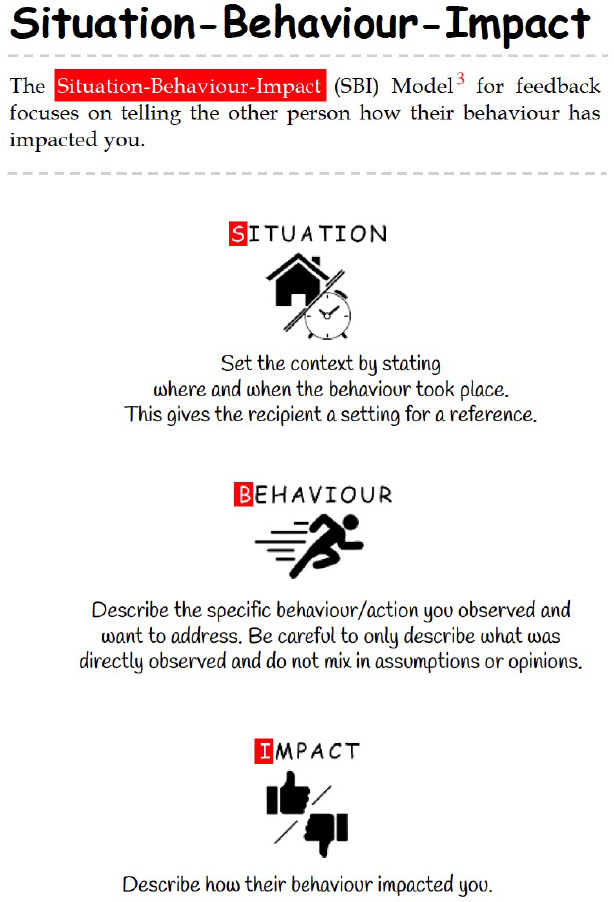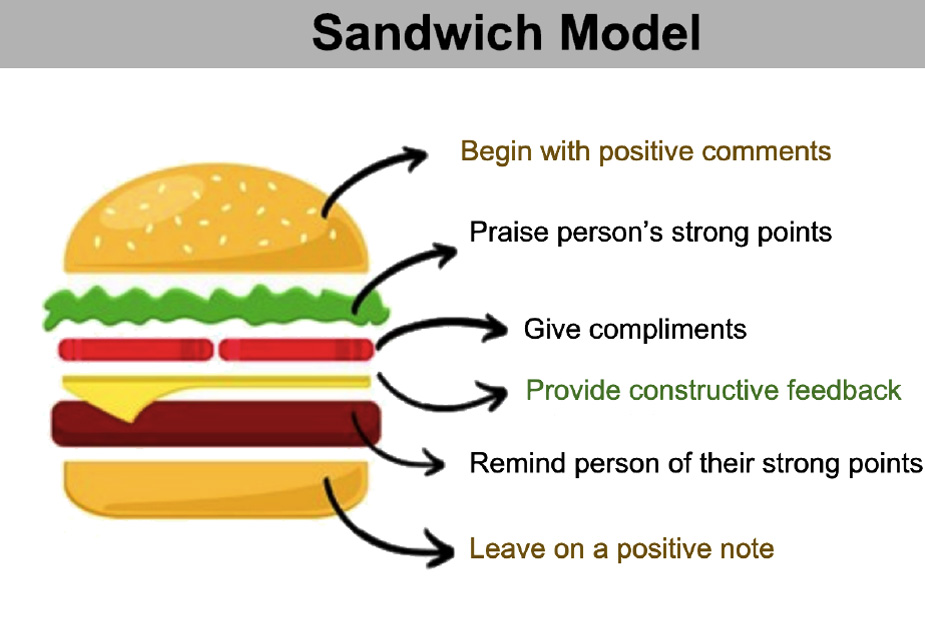The LD Practice of Feedback involves giving, seeking and receiving information about their behaviours for SAF Leaders to gain Self-Awareness. Through formal or informal Feedback, SAF Leaders will need to identify what they could learn and do better to achieve leadership outcomes. At the organisational level, the Feedback Practice fosters an open, continually improving and developmental culture in the SAF.
Types of Feedback
The sources of the Feedback could include SAF Leaders' superiors, peers or subordinates. Such feedback to SAF Leaders could either be formal or informal and may form the basis for Coaching:
Formal Feedback
Formal Feedback takes place at specific time using Feedback Instruments such as the SAF 360° MSLF or the AFR. Formal Feedback provides comprehensive and regular snapshot of SAF Leaders' leadership behaviours that impact their leadership outcomes or work performance. They also serve as the basis for SAF Leaders' formal development, rewards or promotion.
Informal Feedback
Informal Feedback could take place any time without any formal Feedback Instrument. Informal Feedback provides SAF Leaders with timely information on specific aspects of their leadership behaviours. Informal Feedback allows SAF Leaders to correct and improve their leadership behaviours in order to achieve their desired leadership outcomes. Simple tools such as the Feedback Sheet and Round Robin Feedback could be used for Informal Feedback.
Principles of Feedback
Principle 1: Objective
Feedback should be based on objective observable behaviour and performance. It should not be focused on subjective personality projections. Objective Feedback helps the receivers in identifying areas that they could act upon.
Principle 2: Constructive
Feedback should allow the feedback receiver to identify areas that they could learn, do and perform better, and in the case of positive feedback, continue doing.
Principle 3: Actionable
The feedback giver and recipient should agree on what needs to be continued to maintain the performance or done for the person to improve. The feedback conversation should include a discussion on actions that can be taken or should be avoided for future performance or development. Feedback that is specific and “forward-looking” reinforces its “actionability”.
Principle 4: Timely
Feedback should be sought and given at the soonest appropriate time to change or reinforce an action. This is key so that both the feedback giver and feedback receiver can remember the events accurately. However, should the situation be highly emotional, there may be a need to allow all those involved in the situation to cool down before providing feedback.
Useful Feedback Models


Additional Resource(s) Here: